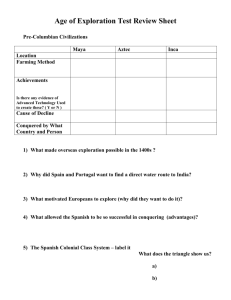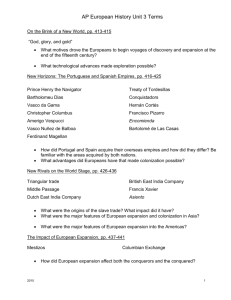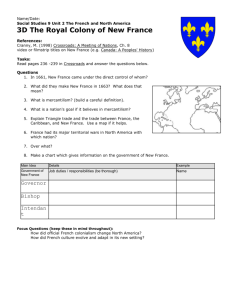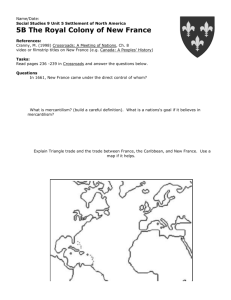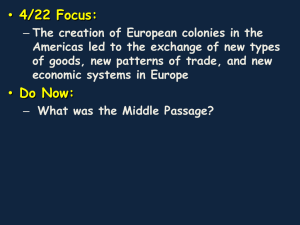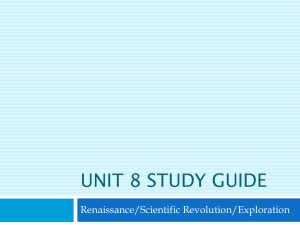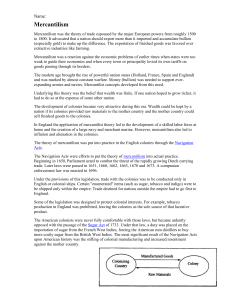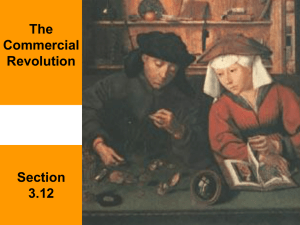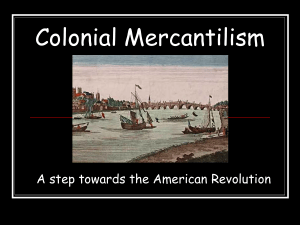Age of Exploration
advertisement
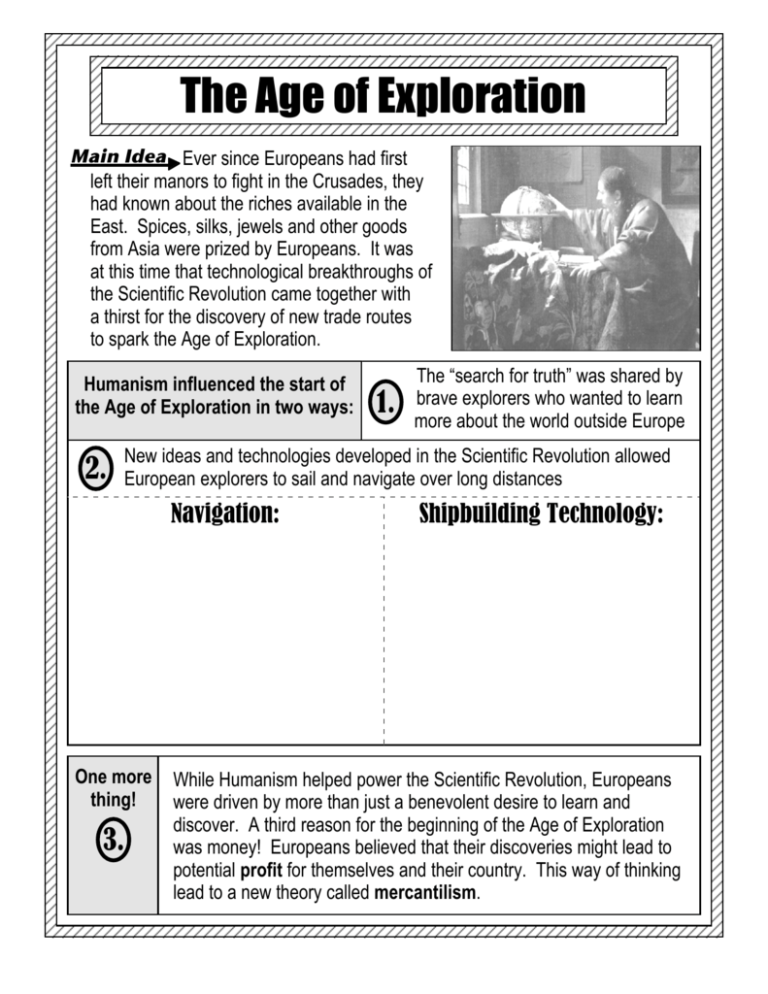
The Age of Exploration Main Idea Ever since Europeans had first left their manors to fight in the Crusades, they had known about the riches available in the East. Spices, silks, jewels and other goods from Asia were prized by Europeans. It was at this time that technological breakthroughs of the Scientific Revolution came together with a thirst for the discovery of new trade routes to spark the Age of Exploration. Humanism influenced the start of the Age of Exploration in two ways: 2. 1. The “search for truth” was shared by brave explorers who wanted to learn more about the world outside Europe New ideas and technologies developed in the Scientific Revolution allowed European explorers to sail and navigate over long distances Navigation: One more thing! 3. Shipbuilding Technology: While Humanism helped power the Scientific Revolution, Europeans were driven by more than just a benevolent desire to learn and discover. A third reason for the beginning of the Age of Exploration was money! Europeans believed that their discoveries might lead to potential profit for themselves and their country. This way of thinking lead to a new theory called mercantilism. Mercantilism: Define Mercantilism - According to Mercantilism, what are the three ways that a country can build wealth? Mine more gold from the land in your country Colonize other lands and mine (take) all of their gold According to Mercantilism completely explain what are the two ways that a country can build a favorable balance of trade? • • What role do colonies play in Mercantilism? Colonies are at the center of Mercantilism because they can help in two of the three ways that a Mercantilistic country can build wealth. Colonies can be a source for gold. Mercantilism says that there is a limited amount of gold on earth so if you can mine additional gold from your colony, your share of the “pie” gets bigger. Colonies help create a favorable balance of trade. Colonies are guaranteed trading partners that supply raw materials and are a market for goods. Colonies were often forbidden to trade with any other country.
